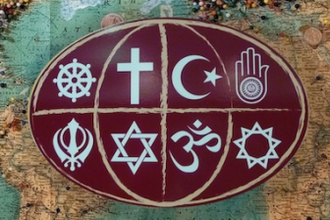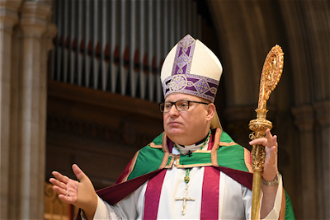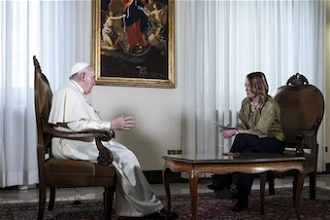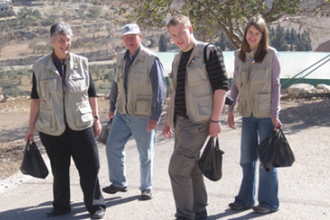To Sanctify the World: The Vital Legacy of Vatican II
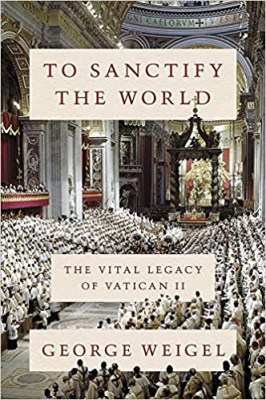
To Sanctify the World: The Vital Legacy of Vatican II, by George Weigel. 363 pages, published by Basic Books (Oct 2022)
Apparently Cardinal Ratzinger, shortly before he became pope, took a well-known quote from St John Paul II's 1996 Encyclical Fides et Ratio and made it into a joke punchline. George Weigel, the author of this excellent book, had pointed out to him a photo shortly after the Second Vatican Council of the priestly Fr Ratzinger dressed, not as a cleric, but in suit and tie. Ratzinger replied, "as Pope John Paul said of the Church, 'we must move from phenomenon to foundation'".
The mere "phenomenon", then, refers, in the joke, to Ratzinger's neck tie and, in the Encyclical, to our culture's myopia. We are so fixated upon the phenomenon of human observation that we can't believe in any definite natural order or moral value beyond the human, let alone beyond the cosmos. Such mere phenomena need better "foundation"!
George Weigel's convincing thesis in this book is that the 1960s Second Vatican Council (the three year, authoritative gathering in Rome of all the world's Bishops) was making this point. The modern world has bought into a self-centred humanism. It led to the "circular firing squad" of the twentieth century, not least the two closely connected World Wars.
This unfounded secular culture has certain insights about the human person, but it needs to be led beyond what can be sensed by our bodies to the spiritual and supernatural. And Vatican II proposed the key to such evangelisation - a "personalistic", Christocentric concept of revelation and of the Church. Weigel argues that the Council "propose[d] a renewed humanism rooted in the dignity of the human person revealed in Christ". (p.110)
Vatican II puts it, Weigel points out, this way (p.166): The human person "can fully discover his true self only in a sincere giving of himself (Gaudium et Spes, 24)". And, "it is only in the mystery of the Word made flesh that the mystery of man truly becomes clear. … Christ fully reveals man to himself and brings to light his most high calling." (Gaudium et Spes, 22)
Weigels' key point is captured on p.133. The Council's Dogmatic Constitution on Divine Revelation (Dei Verbum),
"affirmed that humanity does not live in a claustrophobic world: a world of self-creating, self-contained, autonomous human beings … Rather, the bishops of Vatican II taught, we live in a world open to transcendence, to that which is greater than ourselves."
The book is an engaging read. It has three parts. The first situates the Council in the increasingly hostile culture of the post-Enlightenment West, namely secular "humanism". The second presents Vatican II's antidote as a Christocentric humanism and ecclesiology. The third puts these two parts together with the help of Popes John Paul II and Benedict XVI. Their magisterium has been needed, Weigel argues, because Vatican II itself didn't make clear what the Spirit was doing through it! Furthermore, it was seriously misinterpreted in the years afterwards.
The papal joke with which I began is not in the book. It was included in the answer Weigel gave to a question that I asked at a November talk he gave in Oxford, promoting his book. I argued that he went a little far in suggesting that Vatican II showed just how personalism enables secular humanism to break out of its confines and discover the transcendent God made Man. Dei Verbum only outlined this solution and Gaudium et Spes highlighted that there is more work to do: "the human race is passing from a rather static concept of the order of things to a more dynamic, evolutionary one … calling for efforts of analysis and synthesis … in order to … present to our contemporaries the doctrine of the Church concerning God, man and the world" (n. 5, 62).
Vatican II was proposing rather than providing the solution to the modern crisis of Christianity. It was offering a new starting point for Catholic thought - the human yearning fulfilled in Jesus Christ.
I argued that John Paul II recognised this. Hence my provision of the joke punchline, we still need to go "from phenomenon to foundation." I might have added that in the years after Vatican II Cardinal Karol Wojtyla explained that his own philosophical writings (especially his Phenomenological book, "The Acting Person") were an attempt to respond to this need. Weigel accepted the point, while arguing that the first half of Gaudium et Spes was beginning to fill that gap and that, for instance, Bishop Barron's "Catholicism" video series was doing that through linking the themes of beauty and holiness.
Weigel's book concludes that the needed renewal, which Vatican II was rightly outlining, is ultimately a new prioritising of Christ intellectually and in our personal, daily living. This is the key to the renewal of our civilisation. Not (only) a laughing matter.
Republished from January 2023 edition of Oremus magazine with author's permission.



